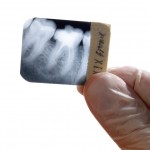
Pain following root canal treatment is often reported by patients with studies suggesting a prevalence of between 3-58%. Along with pharmacological approaches occlusal reduction has also been employed. Occlusal reduction is thought to decrease the mechanical stimulation of peripheral terminals of nociceptors so reducing pain levels and the impact of mechanical allodynia.
The aim of this review was to assess the efficacy of occlusal reduction on the management of post-operative endodontic pain.
Methods
Searches were conducted in the Medline/PubMed, Cochrane Library, Scopus and Google Scholar databases. Randomised controlled trials (RCTs) in patients aged >15 years old comparing the efficacy of occlusal reduction with placebo in reducing post-operative endodontic pain in teeth diagnosed with either irreversible pulpitis or pulpal necrosis. were considered. The primary outcome was post-operative pain intensity score up to 72 hours post operatively. Two reviewers independently selected studies, extracted data and assessed risk of bias using the Cochrane domains based tool. Meta-analysis was conducted using a random effects model.
Results
- 6 RCTs involving a total of 344 patients were included.
- All 6 RCTs were at high risk of bias for at least 1 domain.
- Meta-analyses found no significant differences at 12, 24 or 48 hours but significantly lower pain scores at 72 hours.
| Time Post op | No of studies (patients) | Standardised mean difference (95%CI) |
| 12 hours | 3 (130) | -0.46 ( -1.24 to 0.30) |
| 24 hours | 4 (113) | -0.17 ( -0.24 to 0.38) |
| 48 hours | 4 (139) | -0.67 ( -1.38 to 0.30) |
| 72 hours | 3(182) | -0.32 ( -1.81 to -0.32) |
Conclusions
The authors concluded: –
in endodontic patients, there is no supporting evidence for the efficacy of occlusal reduction in management of post-operative pain up to 48 hours. Only at the third day, occlusal reduction could be effective in the reduction of post- operative pain. However, this conclusion should be considered with caution because of the methodological heterogeneity between the trials and small number of studies. Therefore, further well-designed RCTs with a larger sample size are still required to minimise the effect of confounding factors and enhance statistical power.
Comments
The authors have searched a number of recognised databases for this review only including RCTs. In the discussion they note that only English language papers were included however it is not clear if this was because non-English language papers was an exclusion criteria or whether no non-English RCTs were identified. A previous review (Dental Elf – 7th Jun 2017) has demonstrated early post-operative endodontic pain relief with NSAIDs while another has shown potential benefit from corticosteroid use (Dental Elf – 18th Jun 2018). This new review suggests that occlusal reduction has no benefit in the early post-operative management of pain although suggesting some benefit at 3 days. However, none of the included studies was considered to be at low risk of bias with the reviewers considering all the studies suffered from selective reporting and incomplete outcome data biases. As the authors note the studies are also small and heterogeneous so high quality well-reported RCTsof appropriate size would be needed to help clarify this question.
Links
Primary Paper
Shamszadeh S, Shirvani A, Asgary S. Does occlusal reduction reduce post-endodontic pain? A systematic review and meta-analysis [published online ahead of print, 2019 Dec 27]. J Oral Rehabil. 2019;10.1111/joor.12929. doi:10.1111/joor.12929
Other references
Dental Elf – 18th Jun 2018
Dental Elf – 7th Jun 2017
Endodontic pain can be managed with non-steroidal anti-inflammatory drugs
